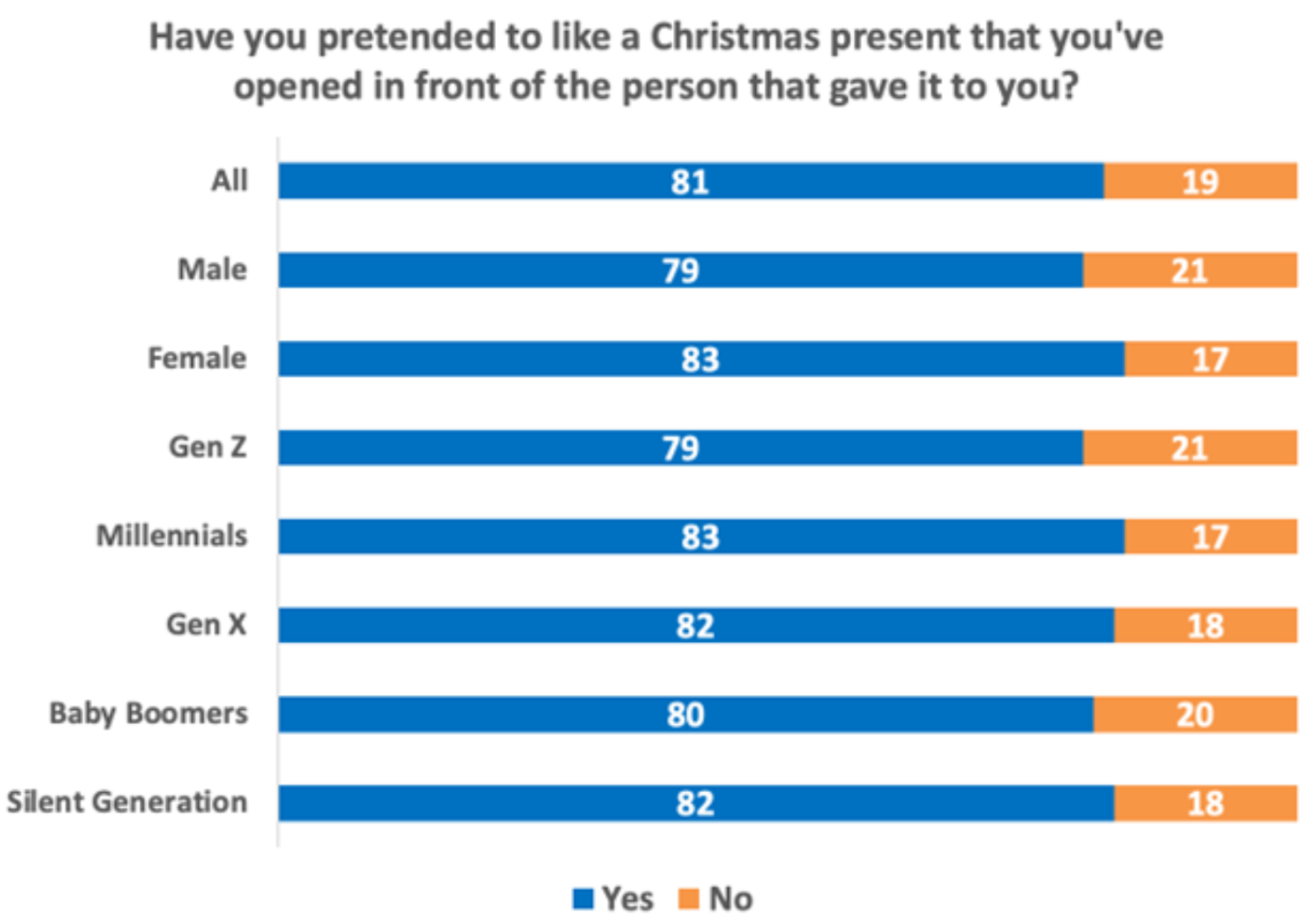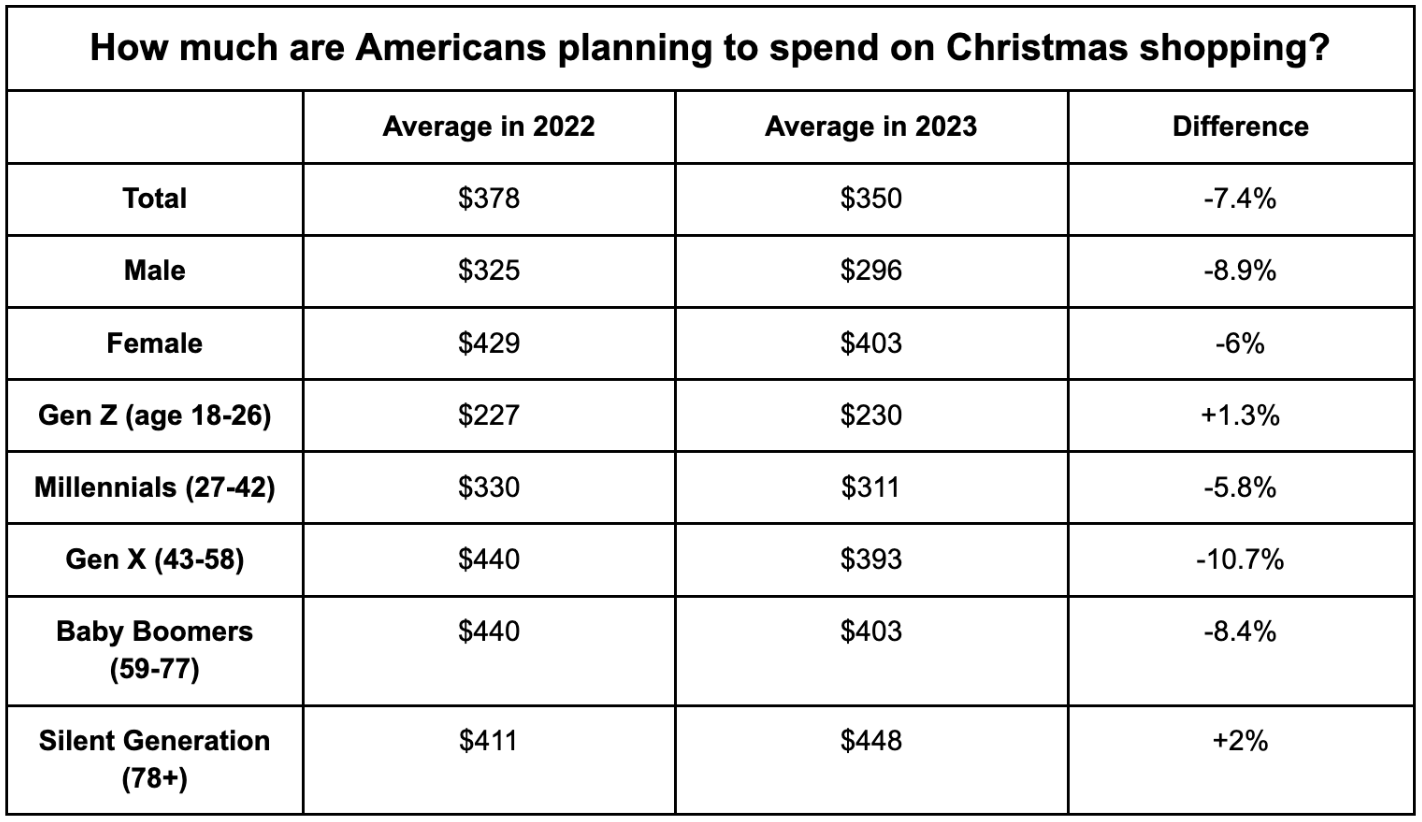Study finds 81% of Americans will pretend to like their Christmas presents, so an EXPERT reveals how to convince people you actually like them
- 81% of Americans admit to pretending that they like a Christmas present that they have opened in front of the person that gave it to them
- A leading psychologist and body language expert says watch out for people looking for surprised for too long as they are likely to be pretending to like their presents
- This comes as Americans are expected to spent 7% less on Christmas presents this year
A study by Sweep.io has revealed that most Americans have pretended to like a Christmas present in front of the person that gave it to them with 81% saying they have used their acting skills, according to a survey of 1,000 US adults.
Women are more-likely to pretend they like a present than men, with 83% of females admitting to liking a seasonal gift in front of the giver compared to 79% of males.
Gen Z are the most honest generation with 79% admitting to acting that they liked their present in front of the gifter, rising to 83% of millennials - the highest for any age group.
Speaking to Sweep.io about the findings, leading psychologist and body language expert Darren Stanton advises that anyone showing a surprised look for more than one second is likely to be lying about how grateful they are for a gift.
“December is the season of ‘Festive Fibbery’ and people are eight times more likely to tell white lies in December than in any other month. We do this to avoid social embarrassment and not appear ungrateful.
“If somebody shows surprise for longer than one second, it’s not real surprise, it’s a fake emotion. A micro-expression showing surprise is when your eyebrows go up, your eyes widen and your mouth goes wide. Similarly, if you give somebody a present and they look overly surprised, then the chances are that they don’t like it and they’re trying to make you feel good. The trick is to not seem too grateful if you’re the receiver.
“The best way to appear grateful for your presents, even if you don’t like them, it to rehearse your response. There’s a famous thing in psychology called ‘visual motor rehearsal’, where people go to the extent of rehearsing false answers and lies in the mirror.
“A top tip to be a top fibber this Christmas is to get to know yourself more. Get to know what expression you show when you are truly grateful. When you’re displaying gratitude for something that you’ve been given that you really like, get to know what your baseline is for the truth and then imagine that someone is giving you something that you really hate and try and mirror that baseline expression to avoid detection.”
This comes as Americans are set to spend 7.4% less on Christmas presents this year compared to last year, with the average spend down to $350 from $378 in 2022.
Gen X, those aged 43-58, are the biggest savers by reducing their spend to $393 from $440 in 2022 - a 10.7% reduction, while Gen Z (18-26) and the Silent Generation (78+) are fractionally increasing their spending.
Full Data:


Survey results via a survey of 1,000 US adults, 03/11/2023 - 06/11/2023 via Censuswide for Sweep.io

